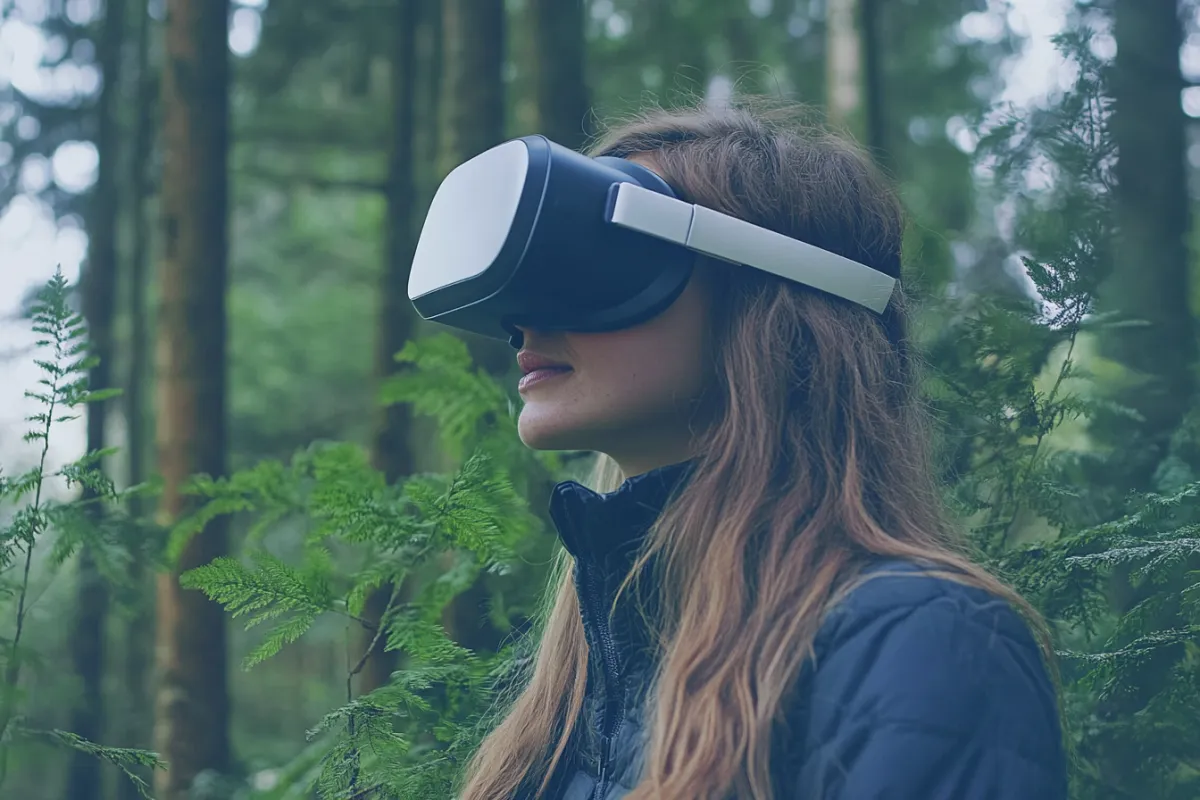
The Future of Nature Therapy
Introduction
Nature therapy, also known as ecotherapy, has gained significant attention in recent years for its holistic approach to health and well-being. As the benefits of connecting with nature become increasingly recognized, the field of nature therapy is poised for substantial growth and innovation. This article analyzes current trends, predictions for the future of nature therapy, and its growing acceptance in mainstream healthcare, while also discussing potential challenges and advancements.

Current Trends in Nature Therapy
The popularity of nature therapy is on the rise, driven by a growing body of research highlighting its mental, physical, and emotional benefits. More people are seeking nature-based interventions to counterbalance the stress and digital overload of modern life. Key trends shaping the future of nature therapy include:
Integration of Technology: Technology is playing a crucial role in expanding the reach of nature therapy. Virtual reality (VR) and augmented reality (AR) are being used to simulate natural environments, providing therapeutic benefits to those who may not have easy access to nature. These technologies can recreate immersive nature experiences, allowing users to engage with calming landscapes, sounds, and wildlife.
Community and Urban Green Spaces: There is a growing movement to design and implement green spaces within urban areas specifically for therapeutic use. Community gardens, urban forests, and rooftop green spaces are being developed to provide accessible nature experiences for city dwellers. These spaces offer residents opportunities for relaxation, physical activity, and social interaction.
Innovations in Nature Therapy
Innovation is driving the evolution of nature therapy, with new approaches and technologies enhancing its effectiveness and accessibility. Some notable innovations include:
Virtual Reality (VR) and Augmented Reality (AR): VR and AR technologies are revolutionizing nature therapy by creating realistic nature experiences that can be accessed from anywhere. These tools are particularly beneficial for individuals with mobility issues or those living in urban environments with limited access to natural settings. VR nature therapy programs can transport users to tranquil forests, beaches, and mountains, providing therapeutic benefits similar to physical nature immersion.
Tailored Nature Therapy Programs: There is an increasing emphasis on developing nature therapy programs tailored for specific populations. For example, programs designed for veterans focus on reducing PTSD symptoms through wilderness therapy, while initiatives for children emphasize outdoor play and environmental education. Similarly, nature therapy programs for the elderly promote physical activity and social engagement in natural settings.
Advances in Research Methodologies: As the field of nature therapy grows, so does the need for robust research methodologies to measure its impact. Innovations in wearable technology, such as heart rate monitors and stress trackers, are being used to collect real-time data on physiological responses to nature therapy. This data helps validate the benefits of nature therapy and supports its integration into mainstream healthcare.
Potential Challenges
Despite its promising future, nature therapy faces several challenges that need to be addressed to ensure its widespread adoption and effectiveness:
Accessibility Issues: Access to natural environments can be limited for urban and disadvantaged populations. Efforts must be made to create accessible green spaces and ensure that nature therapy is inclusive and available to all, regardless of socioeconomic status or geographic location.
Scientific Rigor and Standardization: To gain broader acceptance in the healthcare community, nature therapy must adhere to rigorous scientific standards. Developing standardized practices and guidelines will help establish credibility and ensure consistent outcomes across different programs and practitioners.
Balancing Technology and Authentic Experiences: While technology offers new avenues for nature therapy, it is essential to balance virtual experiences with authentic nature interactions. Over-reliance on technology could diminish the unique benefits derived from direct engagement with the natural world.
Growing Acceptance in Mainstream Healthcare
Nature therapy is gaining recognition among medical professionals and institutions as a valuable component of holistic healthcare. Several factors contribute to its growing acceptance:
Medical Endorsement: Increasingly, healthcare providers are acknowledging the therapeutic benefits of nature and recommending nature therapy as part of treatment plans. Physicians, psychologists, and physical therapists are incorporating nature-based interventions to complement traditional medical approaches.
Case Studies and Success Stories: Numerous case studies demonstrate the positive impact of nature therapy on patient outcomes. Hospitals and clinics are integrating nature therapy into rehabilitation programs, mental health treatments, and chronic disease management. These examples highlight the potential for nature therapy to enhance patient care and well-being.
Collaborative Care Models: The collaboration between nature therapists and healthcare providers is fostering the development of comprehensive care plans that address physical, mental, and emotional health. This integrative approach ensures that patients receive holistic and personalized care.
Predictions for the Future
Looking ahead, several predictions can be made about the future of nature therapy:
Global Expansion: Nature therapy programs are likely to expand globally, with more countries recognizing and implementing nature-based interventions. This growth will be supported by international collaborations and the sharing of best practices.
Preventive Care Emphasis: There will be a greater focus on preventive care through nature-based interventions. By promoting regular engagement with nature, healthcare systems can reduce the incidence of stress-related illnesses and improve overall public health.
Insurance Coverage and Certification: As nature therapy gains legitimacy, there is potential for insurance companies to cover nature-based treatments. Additionally, formal certification programs for nature therapists will be established, ensuring high standards of practice and professionalism.
Conclusion
The future of nature therapy is bright, with exciting trends, innovations, and growing acceptance in mainstream healthcare. By addressing challenges and leveraging technological advancements, nature therapy can become a cornerstone of holistic health and well-being. Staying informed about the evolving field of nature therapy and participating in nature-based interventions can help individuals and communities thrive.
If you're interested in exploring the benefits of nature therapy, consider joining a free ReWild session. Experience firsthand how nature therapy can enhance your health and well-being, and be part of the movement towards a healthier, more connected future.


